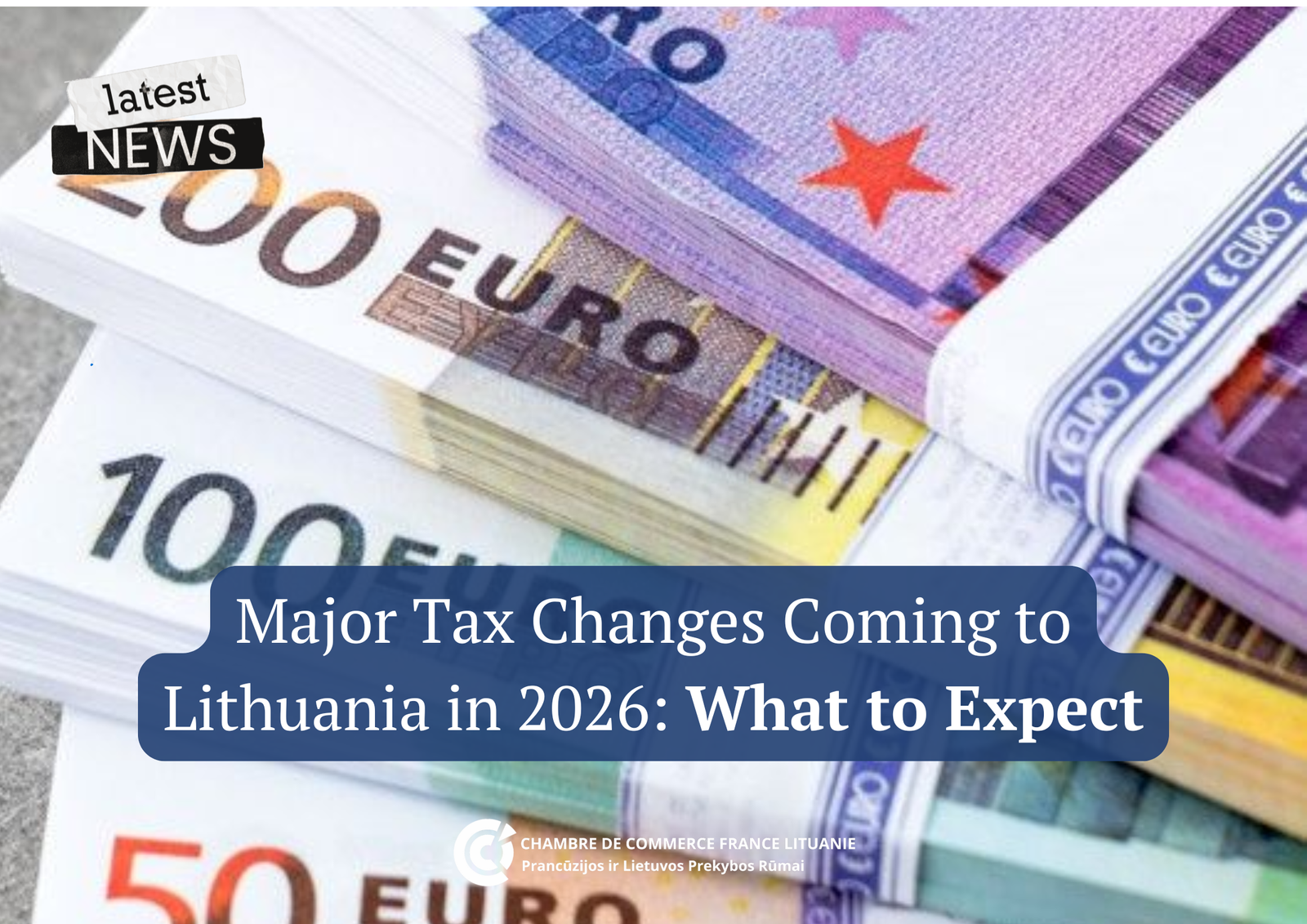Copyright By Chambre de Commerce Franco-Lituanienne - 2024

Starting in January 2026, Lithuania will implement one of its most significant tax reforms in recent decades. Aimed at modernizing the country’s fiscal system, the changes are designed to promote greater fairness, support national defence funding, and encourage sustainable economic development. From progressive income taxes and new property tax rules to revised VAT rates and levies on sugary drinks and insurance, the reforms will affect nearly every individual and business in the country.
Lithuania will implement a three-tiered progressive personal income tax (PIT) system for the first time. Rates will now vary based on total annual income, expressed in terms of average monthly wages (VDU):
Self-employed individuals under business certificates will be subject to similar progression, though a tax credit will protect incomes up to approximately €35,000 per year from taxation.
For farmers, the applicable rates will be 15% (under 60 VDU) and 20% above that. Certain income types—such as dividends, old-age pensions, and long-term investments—will continue to benefit from a 15% flat tax.
The non-taxable income amount (NPD) will now apply only to those earning less than approximately €2,562/month in gross salary. Additionally, a new child-related tax benefit will return in 2027, offering a €208.80 annual tax credit per child or an equivalent NPD increase of around €1,044.
Lithuania’s base corporate tax rate will increase from 16% to 17%, while the reduced rate for small companies will go from 6% to 7%.
Additional changes include:
Significant reform is coming to real estate taxation:
The first property tax payments under this new system will be due in 2027.
Lithuania will reduce the number of reduced VAT rates and simplify the system:
A new 10% levy will be imposed on non-life insurance premiums (e.g., property, travel, and risk insurance), excluding mandatory vehicle liability (TPVCA) and agricultural insurance. The funds will be directed to Lithuania’s State Defence Fund.
To combat public health issues related to sugar consumption, a new excise tax will apply to sugar-sweetened and artificially sweetened beverages:
The reform is expected to generate an additional €277 million in revenue in 2026, and approximately €549 million by 2027, with much of this directed toward defence spending, which is projected to increase by over €500 million annually.
The 2026 tax reforms mark a major shift toward progressive taxation and targeted public investment. The government aims to improve fairness in the tax system, encourage investment in education and productivity, and strengthen national defence capacity.
However, the increased burden on higher earners, property owners, and consumers of sugary products may raise concerns about competitiveness and cost of living. Businesses will need to navigate a more complex tax environment but may benefit from incentives like full investment write-offs and scholarship deductions.
As the implementation date approaches, both individuals and companies are advised to review their financial planning strategies to adapt to the upcoming tax landscape.
Copyright By Chambre de Commerce Franco-Lituanienne - 2024
Signup for news !
You have successfully joined our subscriber list.